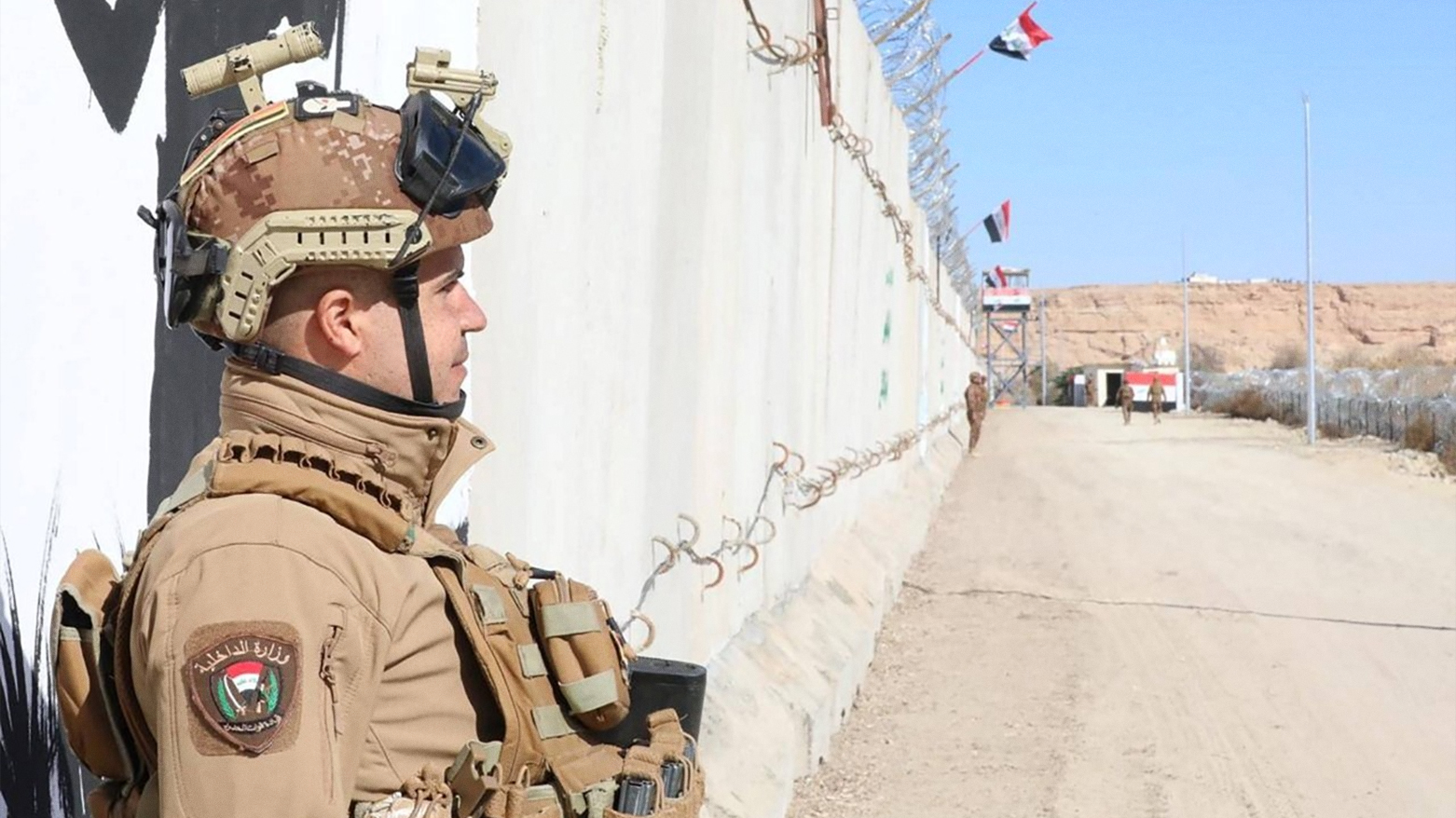Iraqi President Warns of Iraq-Syria Border Volatility, Backs U.S. Role Against Extremism
In an interview with Al Arabiya/Al Hadath on Saturday, Rashid declared that the presence of American troops near the border is “very necessary” to prevent a resurgence of the Islamic State (ISIS), highlighting fears over cross-border infiltration by extremist groups.

By Kamaran Aziz
ERBIL (Kurdistan24) – As Baghdad braces to host the Arab Summit on May 17, Iraqi President Abdul Latif Rashid has underscored the critical security challenges Iraq faces—chief among them, the volatile Syrian border and the continuing presence of U.S. forces.
In an interview with Al Arabiya/Al Hadath on Saturday, Rashid declared that the presence of American troops near the border is “very necessary” to prevent a resurgence of the Islamic State (ISIS), highlighting fears over cross-border infiltration by extremist groups.
He also voiced alarm over armed factions operating along the Iraq-Syria frontier and emphasized the urgent need for bilateral coordination. “The security of Syria and Iraq are inseparable, especially given the long, shared border,” Rashid said, reiterating Iraq’s opposition to foreign meddling in Syria and calling for the preservation of its sovereignty.
Iraqi Interior Minister Abdul Amir Al-Shammari revealed earlier this week that no formal security coordination currently exists between Iraq’s and Syria’s interior ministries. This gap remains a point of concern, particularly in light of heightened border surveillance following the collapse of the Assad regime on December 8, 2024.
Iraqi authorities fear the reemergence of ISIS and other extremist groups, recalling the devastating territorial expansion the group achieved in both Iraq and Syria in 2014.
President Rashid affirmed that the summit will include deliberations on numerous unresolved regional issues, and will conclude with substantive resolutions. However, he stressed in the interview with Al Arabiya that “the most important matter is ensuring the implementation and follow-up of those decisions.”
Rashid underscored Iraq’s ambition to serve as a stabilizing force in the Middle East, stating that Baghdad is actively engaged in efforts to defuse tensions and encourage dialogue between rival factions across the region. He called for the inclusive participation of all Arab leaders, asserting that Iraq welcomes all presidents, heads of state, and dignitaries to the summit.
The role of Syria in the summit remains undecided, with Rashid noting that the level of Damascus’ participation would ultimately depend on the Syrian leadership. Nonetheless, he emphasized Syria’s central importance to Iraq and the wider region.
“Syria is a neighboring, friendly, and vital country,” he told Al Arabiya, expressing hope that the Syrian people will finally achieve peace and stability following years of regional and international isolation.
The Iraqi President welcomed recent political changes in Syria and expressed optimism that the evolving leadership will ensure inclusive governance that respects the rights of all ethnic, religious, and social groups.
As Baghdad prepares to welcome Arab leaders for the summit, it seeks not only to elevate its diplomatic stature but also to assert a stabilizing presence in a volatile neighborhood—one where the shadow of past conflicts continues to shape the battles of the present.
